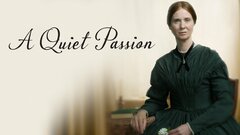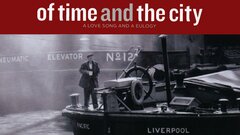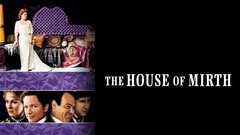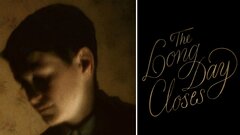Davies was a singularly idiosyncratic, independent British filmmaker noted for his intensely personal autobiographical films ("Distant Voices, Still Lives," 1988; "The Long Day Closes," 1993) that effectively evoke the sounds and textures of post-war working-class life in England's Liverpool. His recurring themes include memory and its close relationship to popular culture--particularly music and movies, the disjunction between bleak lives and glittering fantasies, the collision between the brutish masculine behavior of fathers and the terrified homosexual identity of their sons and the power struggles inherent in familial relations.
Spare and austere, these low-budget yet surprisingly elegant films tend to be contemplative, deliberately paced and melancholy in tone; while certainly not for all tastes, they have been hailed as sublime works of art. Davies worked for twelve years as an accountant and bookkeeper at a Liverpool firm across the street from the famed Cavern Club (where the young Beatles played and Davies never visited). His spare time was filled with learning writing and directing, attending meetings of the Liverpool Writer's Club and going to acting classes. By the mid-1960s, Davies was acting in Liverpool theater and his dramas were performed on local radio.
Davies made his reputation as a writer-director with three acclaimed, semi-autobiographical 16mm films ("Children," 1976; "Madonna and Child," 1980; "Death and Transfiguration," 1983) generally screened together as "The Terence Davies Trilogy." These works depicted their creator's feelings regarding the conflict between his Catholic upbringing and his homosexuality. Davies' first feature, "Distant Voices, Still Lives," a bracing impressionistic chronicle of his family in the 40s and 50s, received some of the most laudatory notices in modern British film history. His impressive follow-up, "The Long Day Closes," a somewhat more upbeat and accessible work, spotlighted a lonely, fey adolescent boy whose drab life is immeasurably more enriched by going to the movies than by attending school or church.
One could describe it as a thinking person's "Cinema Paradiso." Like its grim predecessor, "The Long Day Closes" is peppered by seemingly incongruous popular songs which pack a surprising emotional punch.
Davies left behind autobiographical subjects and headed for the American South for his next film project. He adapted "The Neon Bible" (1995) from John Kennedy Toole's [best known for the Pulitzer Prize-winning "A Confederacy of Dunces"] first novel which he wrote at age 16. Though visually arresting and sporadically poignant, the film represented the artist's first serious misstep. Whereas his severe aestheticism seemed to emanate organically from his previous subjects, here it felt almost arbitrarily imposed on the Southern Gothic material. As a result, "The Neon Bible" keeps the audience at emotional arm's length despite strong performances from Gena Rowlands as a faded showgirl and Diana Scarwid as an emotionally disintegrating mother.
Following a five year absence, Davies returned to the big screen with a beautifully realized adaptation of Edith Wharton's novel "The House of Mirth." Having heard a BBC radio program about Wharton in 1984, he became intrigued by the author and her works and determined to make a film based on her fiction. Having fully mined his own childhood in his early films and proving he could adapt a novel to the screen, Davies returned to the book in 1994 and found modern resonances in Wharton's tale of how beauty and wealth can corrupt and destroy. Once he had written the script and secured the financing, he set about finding the right actress to play the heroine Lily Bart.
Saying he wanted to find someone who looked as if they stepped out of a John Singer Sargent painting, the filmmaker offered the role to Gillian Anderson, who responded by delivering one of her best screen performances (and arguably, one of the year's best). Davies' terrific adaptation captured the Belle Epoch perfectly, and demonstrated his growth as movie maker.






































